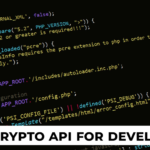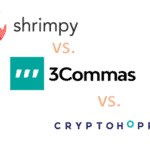Key Takeaways
- Remolona clarified that the CBDC would not utilize blockchain or distributed ledger technology.
- Central bank to use the Philippine Payment and Settlement System, which is owned and operated by the BSP for CBDC
The Philippines is gearing up to introduce a central bank digital currency (CBDC) within the next two years, following the lead of other global regulators who have embraced digital tokens as an alternative to volatile cryptocurrencies.
According to Bangko Sentral ng Pilipinas (BSP) Governor Eli Remolona Jr., the decision to develop a CBDC was prompted by the need for an alternative payment system and store of value. Remolona clarified that the CBDC would be wholesale-focused rather than retail, and it would not utilize blockchain or distributed ledger technology.
Speaking to the local newspaper Inquirer on Feb. 12, Remolona elaborated on the BSP’s plans for the CBDC. He expressed reservations about using blockchain technology, citing challenges faced by other central banks. Instead, the BSP will leverage its Payment and Settlement System to facilitate the CBDC, with a focus on wholesale transactions mediated by banks.
Remolona highlighted concerns about potential issues with retail CBDC, such as disintermediation and bank runs during financial stress. He emphasized the need to limit the CBDC to wholesale transactions, with banks acting as the primary counterparties.
Drawing inspiration from countries like Sweden and China, Remolona sees the CBDC as a digital complement to cash and a competitor to cryptocurrencies. He expressed confidence that the Philippines can replicate their experiences and expects the CBDC to be implemented within his term as governor, possibly within the next two years.
When asked about the technology behind the CBDC, Remolona mentioned the Philippine Payment and Settlement System, which is owned and operated by the BSP. He cited a study by the Bank for International Settlements, indicating that wholesale CBDCs could mitigate the risk of fraud and cyberattacks by improving digital record-keeping irrevocability.
The central bankers in the Philippines have always viewed wholesale CBDCs as a tool to reduce settlement risks and improve the efficiency of domestic large-value financial transactions.
Despite their enthusiastic approach towards CBDC, it has not however extended to the entire digital asset sector.
In late 2023, the Philippines’ Securities and Exchange Commission (SEC) initiated steps to block access to Binance, the world’s largest cryptocurrency exchange, citing a lack of required permits and licenses. The SEC also accused Binance of unlawfully promoting its services within the country.
The latest development comes amid CBDC becoming increasingly popular among the masses. As per reports, Over 100 countries were actively engaged in CBDC research in June 2023, with 11 countries having launched CBDCs, and 21 implementing pilot programs by October 2023.








